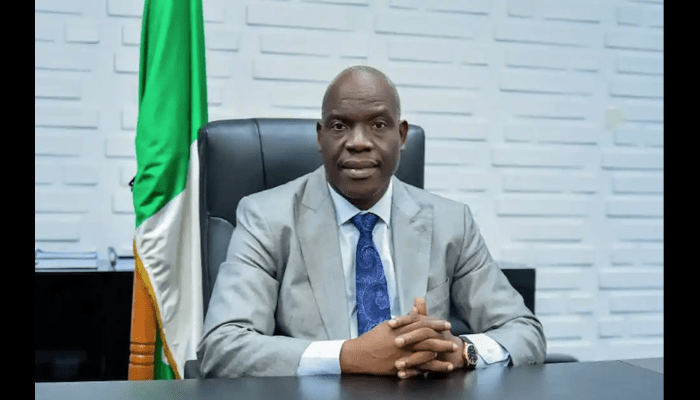The Nigerian Upstream Petroleum Regulatory Commission (NUPRC) has announced a 24-hour window for new investors to register for the 2024 oil block licensing bid round.
This critical deadline was highlighted by Gbenga Komolafe, chief executive of NUPRC, during the 23rd Nigerian Oil and Gas Energy Conference (NOG) in Abuja.
In his address titled “Defining the Outlook for Deep Water Exploration and Production in Nigeria,” Komolafe emphasised that the registration and submission of pre-qualification documents will close at midnight on Friday, July 5, 2024.
“Registration closes at midnight Friday, July 5, 2024,” he reiterated, stressing the urgency for interested parties.
The bid round process officially began on May 29, 2024, with the launch of the bid portal and advertisement, concluding on May 10, 2024. Komolafe detailed the forthcoming stages of the bid process, which include technical and commercial bid submissions, data access, data purchase, evaluation, bid preparation and submission, technical bid evaluation, publication of pre-qualified companies, and the commercial bid conference. These phases are scheduled to start on August 7 and conclude on December 13.
Subsequent steps, including ministerial consent, contracting, and negotiation, will commence on December 16 and end on January 29, 2025. Komolafe also noted that out of the 31 blocks available, five are currently under litigation.
The NUPRC had earlier announced the commencement of the 2024 oil block licensing round in May. This announcement was made during the Miami, Florida International Roadshow for the 2024 licensing round, hosted by the NUPRC in collaboration with the Petroleum Technology Association of Nigeria (PETAN).
The 2024 block licensing round, set to span approximately nine months, was described by Komolafe as a significant advancement in the strategic hydrocarbons development initiative.
He explained that the round will feature 12 carefully selected blocks, covering a range of geological settings from fertile onshore basins to the promising continental shelves and the untapped depths of Nigeria’s deep offshore territories.
